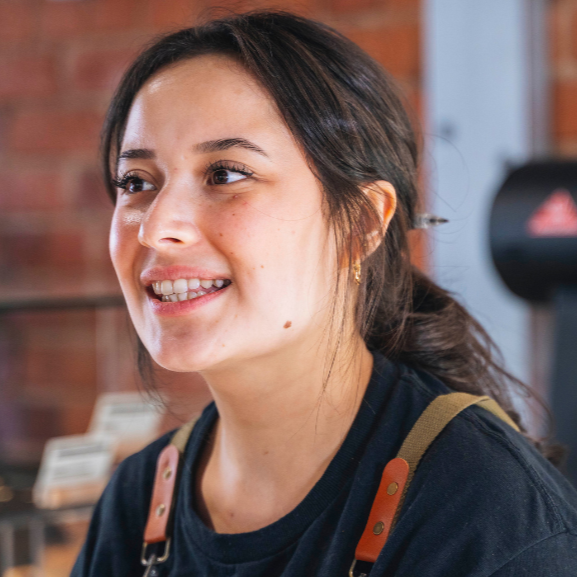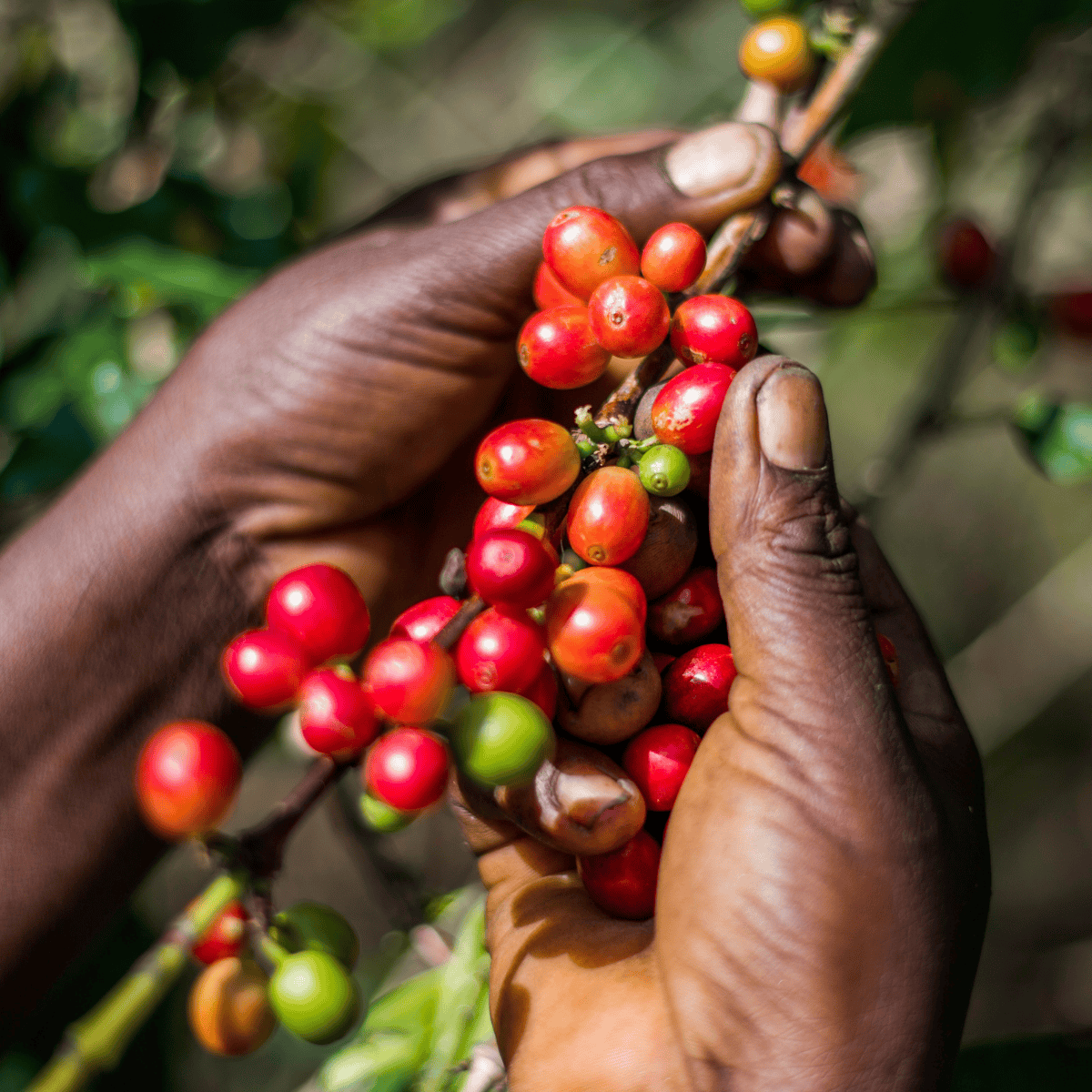Customer Portal

Is Decaf Coffee Bad For You?
by Jack Foster September 20, 2024 4 min read
Did you know that 1 in 5 coffee drinkers opt for decaf coffee? (according to a report by Mintel). Decaf coffee is a great alternative to regular caffeinated coffee and is a great option for those who enjoy coffee but don’t want to experience the side effects that come with it.
Throughout this blog, we will discuss everything you need to know about decaf coffee, including how it is decaffeinated and whether it’s bad for you. Keep reading to find out more.

How is Coffee Decaffeinated?
Decaffeinated coffee is more complex than you think! There are many different methods to remove caffeine from coffee, such as:
- Solvent-based methods
- Swiss water process
- Carbon dioxide method
- Ethyl Acetate (EA Sugarcane)
Before the decaffeination process begins, the unroasted green beans are steamed to allow their pores to open.
1: Solvent-based Methods
There are two types of solvent-based methods, these include indirect and direct. Here is how to remove caffeine from the coffee beans using the direct method:
- Soak the steamed beans in a chemical solvent, such as methylene chloride
- The solvent works by binding itself to the caffeine molecules and removing them from the beans
- This process is repeated until the desired amount of caffeine has been removed
- To finish, steam the beans again to remove any solvent that may have been left over
To remove caffeine from coffee using the indirect method:
- Soak the beans in hot water to allow the caffeine to be released
- Separate the beans from the water
- Treat the water with a chemical solvent to remove the caffeine
- Evaporate the solvent from the water
- Place the beans back in the water to soak up the flavour and oils
2: Swiss Water Process
The Swiss water process involves soaking the coffee beans in hot water, which will cause the caffeine molecules to transfer out of the beans and into the water. Here is a step-by-step guide on how to remove caffeine from the coffee beans:
- Start by soaking the beans in hot water. This will create a caffeine and flavour-rich solution
- Discard the original batch of beans
- Run the solution through activated charcoal filters to trap the caffeine molecules
- Use this caffeine-free water to soak a new batch of coffee beans
- Finally, the new beans will only release caffeine as the water is already full of flavour and oils
3: Carbon Dioxide Method
Then, we have the carbon dioxide method. Here are steps on how to decaffeinate coffee using this method:
- Firstly, place green coffee beans in a high-pressure chamber
- Pump the liquid Co2 into the chamber
- The Co2 works by attaching itself to the caffeine molecules
- Finally, remove the caffeine through the high-pressure
4: Ethyl Acetate (EA Sugarcane)
Last but not least we have what is known in the industry as the Sugarcane process. This process is the most popular within the speciality market as it retains the most flavour profile from origin and can be classed as a natural method.
Ethyl Acetate is a naturally occurring compound when harvesting the sugar cane, the coffee beans are moistened with water and the compound is circulated throughout.
Caffeine from the beans binds with the ‘EA’ and extracts it leaving most of the other flavour compunts behind. The beans are steamed to remove any ‘EA’ residue once the decaffeination process is complete. This method is what we use here at Crosby for both of our decaf coffees.
Is Decaf Coffee Safe to Drink?
Although it sounds like a lot of chemicals are being used in the decaffeination process, it is completely safe to drink because the methods used are regulated by food safety authorities. They make sure that all solvents used are evaporated almost completely.
All coffee beans undergo thorough and efficient rinsing to make sure that there is no remaining residue left behind. So, to answer your question, yes – decaf coffee is completely safe to drink, so enjoy!

So, is Decaf Coffee Bad for You?
Now for the big question… is decaf coffee bad for you? Decaf coffee isn’t necessarily bad for you, it may be a better choice for some people.
For example, if you have an intolerance to coffee, don’t enjoy the side effects associated with it, are pregnant or breastfeeding, or simply want to reduce your caffeine intake. Decaf coffee is the solution for you.
Although decaf coffee isn’t 100% caffeine-free, 97% of caffeine is removed during the decaffeination process. Decaf coffee is not recommended for those with an allergy to caffeine.
What Are the Benefits of Decaf Coffee?
Now that you have a better understanding of how coffee is decaffeinated and whether it’s bad for you, let’s explore the benefits:
- Decaf coffee contains antioxidants that have been associated with reducing the risk of type 2 diabetes, certain cancers and heart disease
- Decaf coffee has been shown to have a protective effect on the liver
- Decaf coffee is a better choice for those who suffer from a lack of sleep and anxiety
- Decaf coffee is better for your teeth
These are just some of the many benefits decaf coffee offers. Although there can be some potential drawbacks, such as it can be linked to higher cholesterol levels, the benefits outweigh the drawbacks.
Decaf Coffee at Crosby Coffee
Did you know that 80% of people who visit coffee shops do so at least once a week? Coffee is a massive part of many people's lives. Whether it’s used for an energy boost, a pick-me-up, or just purely for the taste, people in the UK drink around 98 million cups of coffee a day!
Here at Crosby Coffee, we have created strong partnerships with sustainable coffee farms which allows us access to their prime lots of harvest each year.
Our unique roasting style, and excellent knowledge of coffee, are valued by our customers as we continue to strive to be your dedicated and reliable coffee partner.
We offer a wide range of services, such as workshops, coffee machines and coffee beans, including 2 decaf coffee options. Find out more about our decaffeinated coffee selection today by contacting us; we look forward to hearing from you!
1 Response
Leave a comment
Comments will be approved before showing up.
Also in Updates
Hey there! Fancy 10% Off?
Sign up to our newsletter and we'll send you all our latest offers, including 10% off your first coffee order!
















shrea kuile
July 30, 2025
It is a learning topic on the health benefits of decaf coffee. Thanks for sharing the useful blog. You mentioned the nutrients and health benefits of decaf coffee. Though I drink black coffee and get health benefits but I learned a lot about decaf coffee from your topic. How much decaf coffee can a heart patient drink daily? I like your blog and also prefer organic products.